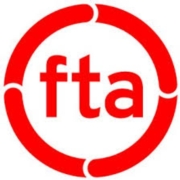It’s time to clear the air
“Dirty air is the largest environmental risk to public health in the UK” according to the Health Secretary. To help address this problem, The Freight Transport Association’s (FTA) established its Logistics Emissions Reduction Scheme.
The Logistics Emissions Reduction Scheme is a free to join industry initiative which focuses on the recording, reporting and reducing of emissions from freight transport.
The scheme is free to join and open to all companies who operate at least one commercial vehicle, HGV or van. LERS helps companies record and report their carbon emissions from their freight operations and demonstrates their green credentials.
It carries weight with the government, trade associations and buyers of logistics services. Currently, 135 members have joined the scheme and represents over 88,000 commercial vehicles from fleet operators, and local authorities.
It’s predecessor, the Logistics Carbon Reduction Scheme, was launched in December 2009 by 12 founding members and was developed in response to the UK Climate Change act and the Department for Transport’s Low Carbon Strategy 2009 to demonstrate that the industry is capable and willing to reduce their emissions without further regulation.
Following the Government’s “Air Quality in the UK” plan to reduce nitrogen dioxide emissions in July 2017, the scheme was relaunched in April 2018 with a new name. Members felt the scheme should be aligned with the governments new focus on improving local air quality as well as carbon reduction agenda.
The scheme is sponsored by industry partner Bridgestone who have supported the scheme since the beginning and new industry partner ExxonMobil who joined at the beginning of 2019. FTA provides admin support to the scheme and their Environment Working group oversees its development. The scheme is independent, and companies do not require an FTA membership to join.
The Scheme also shares best practice with members and has its own dedicated website which has been designed to provide updates on environment policy, regulations and advice on reducing emissions and increasing fuel efficiency.
Impact of Road to Zero
In July 2018, the government launched their Road to Zero document, which introduced a new voluntary industry-supported commitment to reduce HGV greenhouse gas emissions by 15 per cent by 2025, when compared to 2015 levels. In direct response to this, a new target has been set for the scheme, to align the scheme with the government’s target and enable industry to achieve it. Members are now working towards a 15% reduction in CO2 emissions by 2025, compared to 2015 levels. Companies can use LERS to track their own performance and demonstrate their corporate and social responsibility credentials.
Members are asked to provide their fuel usage, and vehicle kilometres travelled for their whole fleet, once a year. Data submissions are completed online, and all information is kept confidential. The data is aggregated to establish a carbon footprint for the scheme and members also receive a report illustrating their year on year progress and receive an annual certificate of membership.
Progress so far
A report illustrating members achievements is released annually. In the latest report which covers scheme data from 2017, members achieved an impressive 4% reduction in their emissions. Members emissions are close to 13% lower per vehicle km than the industry average, and their fuel bills are 13% lower. Members continue year on year to significantly outperform industry as a whole, which is struggling to reduce carbon emissions at all.
In addition, the Scheme collects the Euro standards of participating vehicles; 48% of the LERS HGV fleet has upgraded to Euro VI, and 44% of members vans are Euro 6. This demonstrates a commitment to replacing their fleets with newer, less polluting vehicles.
Members are also continuing to trial and implement new, alternatively powered technologies despite the ongoing uncertainty over infrastructure and payback periods and utilise multiple efficiency measures to reduce their remissions including tyre management, periodic driver training and telematics.
Awards
The Scheme also hosts annual awards to celebrate and recognise the efforts its members are making to improve air quality and reduce their impact on the environment. This year’s Excellence in Innovation award was presented to John Lewis, who have successfully introduced 60 gas tractors, and two 18 tonne rigids which are fuelled by biomethane into their fleet, with a further 200 expected by the end of the year. This will help them deliver their commitment of a 100% biomethane heavy duty vehicle fleet by 2028. Their efforts are aligned with both the LERS objectives and the governments voluntary industry target.
Improving local air quality and reducing the impact from transport on our environment is a shared responsibility and we all must play our part in the solution. The Logistics Emissions Reduction Scheme identifies the best ways for freight to improve fuel efficiency, illustrates a continued commitment to reducing emissions and offers support and best practise tips. FTA are proud to support the scheme and would encourage more fleet operators to take part.
Signing up is quick, easy and simple, you can download a Declaration of Intent form from http://lers.org.uk/ or contact Rebecca Kite, [email protected] for further information.


.png)



.png)